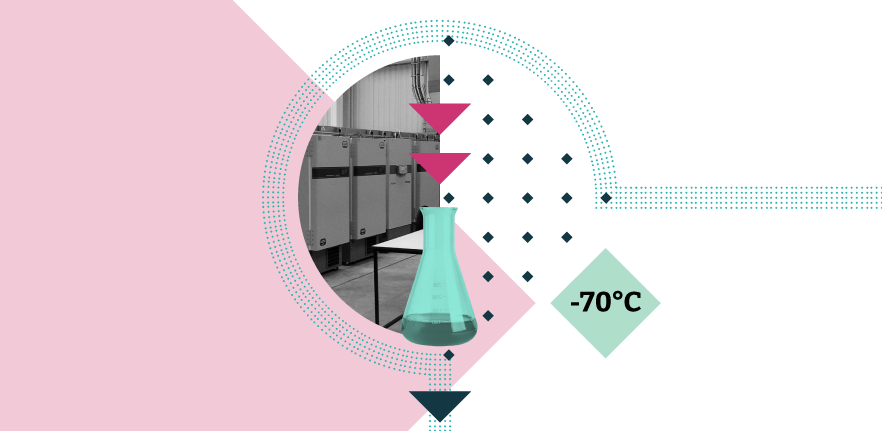
Submitted by Mica Carrey on Sun, 30/03/2025 - 18:46
Since 2022, the School of Clinical Medicine (SCM), led by their Climate and Sustainability Action Group, has been developing and delivering its Local Environmental Sustainability Plan (LESP). To date, the group has coordinated a range of sustainability initiatives, including reducing the energy consumption and extending the lifespan of ultra-low temperature (ULT) freezers. Chaired by the Deputy Head of School, Professor Ed Bullmore, the group introduced a policy that requires all labs to set their ULT freezers to -70°C. This move is aligned with the University’s environmental commitments and offers significant operational benefits.
ULT freezers, which are used to store lab samples at very low temperatures, consume as much energy as the average one- or two-person UK household. By operating them at -70°C instead of -80°C, energy consumption can be reduced by about 25%. Running the compressors less frequently can extend the lifespan of the freezers and generate less waste heat, creating a more sustainable and comfortable lab environment.
In April 2024, SCM Heads of Departments approved in principle the proposal to introduce the policy. The concurrent policy, written by Professor Judy Hirst, Head of the MRC Mitochondrial Biology Unit, was approved and adopted by the School shortly after.
Once implemented at School level, the Climate and Sustainability Action Group gained the authority to implement the policy across each SCM department. A comprehensive survey carried out in May 2024 documented the ULT freezer inventory across the whole of the SCM, recording each freezer’s modal type, temperature setting, and any exceptions to the -70°C requirement.
This approach has led to significant progress, with 8 School departments no longer using ULT freezers set at -80°C, 4 departments with all freezers set to -70°C (with reasonable exceptions), and 6 departments moving towards full compliance.
This initiative is just one example of how the Climate and Sustainability Action Group is working closely with Business and Operations Managers across SCM departments to drive sustainability initiatives and policy compliance across SCM. Another key achievement has been the commitment by all departments to develop and deliver School LESPs to support alignment with the Concordat for the Environmental Sustainability of Research and Innovation Practice, of which the University is now a signatory.
